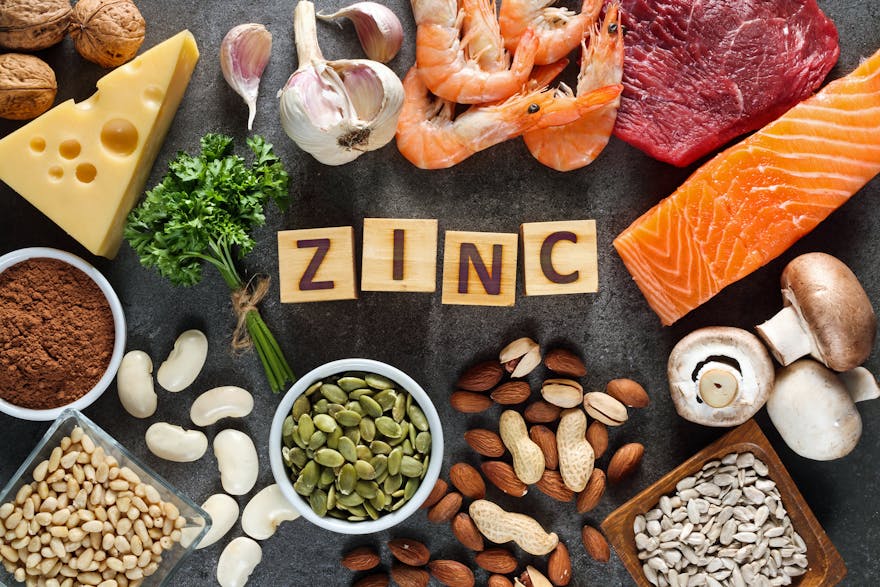Join us in Anaheim, CA at EXPO WEST | March 3-6 | Booth #4475
Home » Product Features and Benefits » Zinc: The Unsung Hero of Immune, Skin, and Hormonal Health
Share this post
Zinc may not be the flashiest nutrient on supplement labels, but it’s one of the most essential trace minerals your body needs. From immune defense to wound healing and hormonal balance, zinc plays a role in over 300 enzymatic reactions—making it a foundational nutrient in both daily multivitamins and targeted wellness supplements.
As awareness around immune health, skin function, and metabolic resilience grows, so does the popularity of zinc supplements. Whether in capsule, lozenge, or powder form, zinc is becoming a must-have for proactive health maintenance.
Zinc is a mineral naturally found in soil and certain foods, but the body doesn’t store it—meaning you need to replenish zinc daily through diet or supplementation. It supports multiple systems in the body, including:
Low zinc levels can lead to weakened immunity, hair loss, slow healing, and even mood changes.

Zinc is best known for its role in immunity. It helps white blood cells function properly, reduces inflammation, and can shorten the duration of colds when taken at the first sign of symptoms.
Zinc regulates sebum production and supports collagen synthesis, making it a key nutrient for clear skin and acne prevention. It’s often used in both topical and oral acne support supplements.
Zinc is vital for testosterone production, sperm quality, and reproductive health in men. It also helps regulate hormone balance in women, particularly during PMS or menopause.
Thanks to its role in cell division and inflammation control, zinc speeds up the healing process for cuts, wounds, and surgical incisions.
Zinc is a key player in antioxidant defense, protecting cells from oxidative damage and supporting long-term eye health, especially in aging populations.
Vegetarians, pregnant women, people with gut issues, and those who consume excessive alcohol are more prone to zinc deficiency. Symptoms may be subtle but impactful—think low energy, poor immunity, and skin issues.
Some forms of zinc (like zinc picolinate, zinc glycinate, or zinc citrate) are better absorbed than others. Zinc oxide, while common, has lower bioavailability unless used topically.
High doses of zinc can interfere with copper and iron absorption. That’s why balanced formulations often include copper to prevent long-term deficiencies.
Many use zinc seasonally, but it plays an essential role year-round—for brain function, mood regulation, and even taste perception.
Zinc may be small in quantity, but it’s mighty in function. Whether you’re formulating a daily multivitamin, an immune booster, or a skin health supplement, zinc belongs in the spotlight. Look for high-bioavailability forms and proper dosing to ensure your customers get the most from this essential mineral.
Discover additional resources to help scale your supplement business and stay ahead of industry trends